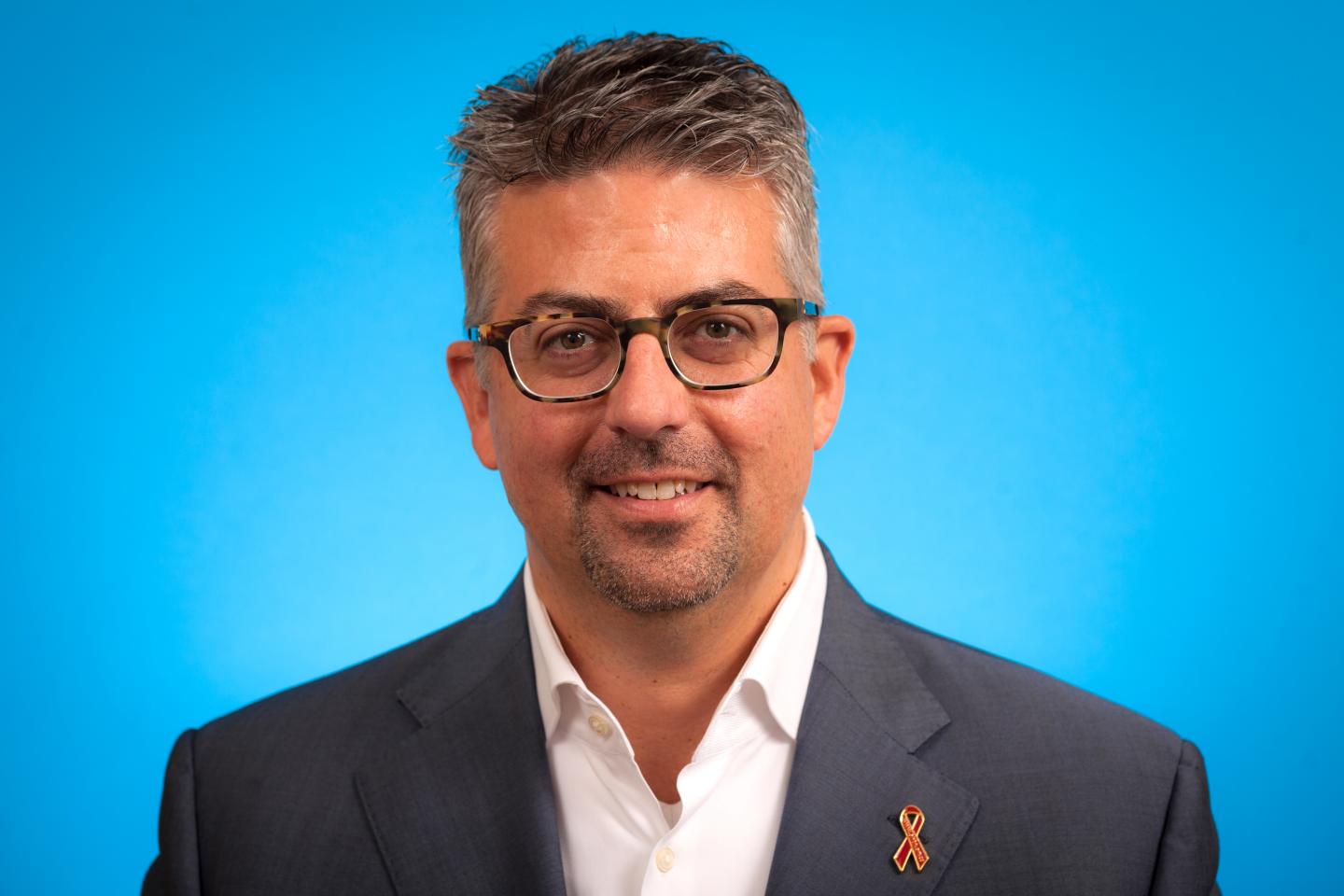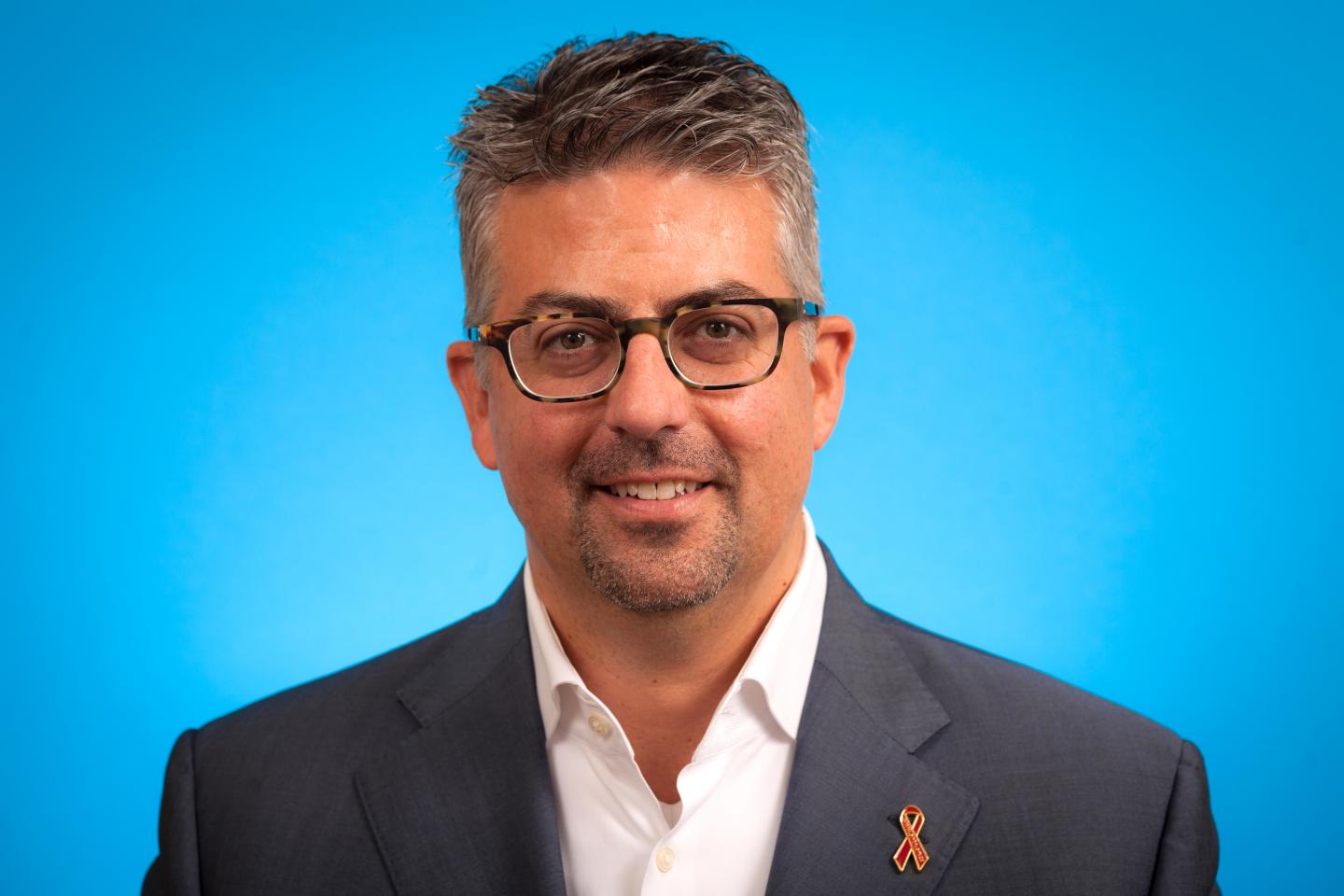
Credit: Courtesy of St. Michael's Hospital
TORONTO, Dec. 1, 2017–For many people living with HIV, the stigma associated with their illness is itself a health risk. It impacts their mental health and wellbeing, their social interactions, even how closely they follow medical advice, adhere to their therapies, and get connected into and stay in care.
To identify the sources of HIV stigma, and find ways to reduce and eliminate them, a research team from St. Michael's Hospital is leading the HIV Stigma Index in Canada.
Led by Dr. Sean Rourke, a scientist with the hospital's Centre for Urban Health Solutions, and Dr. Francisco Ibáñez-Carrasco, a researcher who has lived with HIV for more than 30 years, the team will conduct up to 2,500 surveys and interviews across Canada, using a unique method developed in Europe and already used in dozens of countries around the world.
The People Living with HIV Stigma Index tool requires all of the interviews to be conducted people who are HIV positive, with people who are HIV positive, and be done in person. The results will be used regionally to promote changes in policy, health care as well as individual awareness and behavior of Canadians.
An estimated 75,500 people in Canada live with HIV, according to the 2014 national HIV estimates. This represents an increase of 9.7 per cent since 2011, which Dr. Rourke said was discouraging, especially since rates of new HIV diagnoses have been declining in many other Western industrialized countries.
"HIV-related stigma refers to the negative attitudes, beliefs and actions directed towards people living with HIV," Dr. Rourke said Friday, World AIDS Day. "Stigma is perceived and often internalized, and when this happens, people living with HIV often are forced to surrender to silence, because of the judgmental language and actions of others."
Dr. Ibáñez-Carrasco said that experiencing HIV-related stigma contributes not just to poorer health outcomes but to discrimination in housing and in the workplace.
"As a result of experiencing this stigma, some people may engage in behaviors that can make them vulnerable to coercion, shame, anxiety, depression and the use of substances, in order to cope" he said.
Because of stigma – "People living with HIV can lose employment and housing, their status can be disclosed without consent, intimate partners may reject them or accuse them of trying to infect them, and families shun them. HIV stigma is the last barrier to the social equality of persons living with HIV – it affects prevention efforts, access to treatments and support services, schooling, and success in the workplace."
###
The Canadian Institutes of Health Research and the Public Health Agency of Canada announced today the research team has received $1.5 million to carry out this study.
About St. Michael's Hospital
St. Michael's Hospital provides compassionate care to all who enter its doors. The hospital also provides outstanding medical education to future health care professionals in 29 academic disciplines. Critical care and trauma, heart disease, neurosurgery, diabetes, cancer care, care of the homeless and global health are among the hospital's recognized areas of expertise. Through the Keenan Research Centre and the Li Ka Shing International Healthcare Education Centre, which make up the Li Ka Shing Knowledge Institute, research and education at St. Michael's Hospital are recognized and make an impact around the world. Founded in 1892, the hospital is fully affiliated with the University of Toronto.
For more information, contact:
Kelly O'Brien, Communications Adviser–Media
Phone: 416-864-5047 or 416-573-8358
[email protected]
St. Michael's Hospital
Inspired Care. Inspiring Science.
http://www.stmichaelshospital.com
Follow us on Twitter: http://www.twitter.com/stmikeshospital
Media Contact
Kelly O'Brien
[email protected]
416-864-5047
@StMikesHospital
http://www.stmichaelshospital.com/





